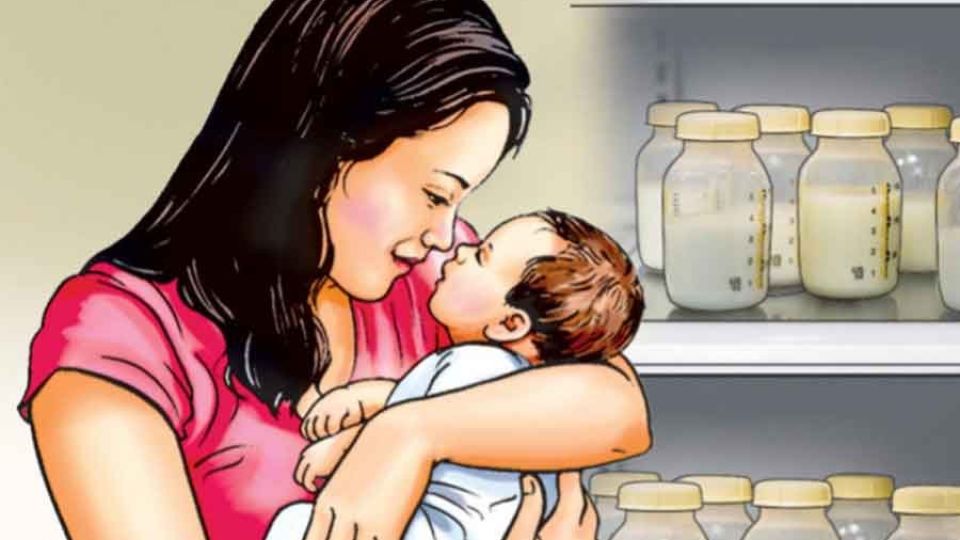February 18, 2025
KATHMANDU – As many as 36 staff nurses serving in 18 federal and provincial hospitals across the country lost their jobs in three months, as funds from the USAID, which was used to hire those health workers, were suspended abruptly and indefinitely in January-end.
Those nurses were hired to promote exclusive breastfeeding practices at the hospitals, where thousands of women seek safe delivery services every year.
“It is unfortunate that we could not continue the service of those staff nurses,” said Dr Bibek Kumar Lal, director at the Family Welfare Division of the Department of Health Services. “The World Health Organisation, through the USAID budget, helped us in hiring those nurses.”
Job termination of 36 staff nurses is among multiple crucial programmes of health care affected by the abrupt decision of the US government to suspend nearly all US assistance worldwide for three months, with immediate effect.
Several other programmes of health care, which have been running throughout the country with indirect support of the agency, have also been affected by the aid cut.
Officials said that the United Nations Children’s Fund, through USAID funds, had supported the government in hiring staff for exclusive breastfeeding and bringing in international experts to prepare master trainers.
Officials at the Nutrition Section of the Family Welfare Division said that exclusive breastfeeding practices have been steadily declining in recent years.
Studies also show that Nepal’s exclusive breastfeeding rate has fallen over the years. According to the Nepal Demographic and Health Survey 2022, exclusive breastfeeding slipped consistently from 70 percent in 2011 to 56 percent in 2021.
The report also showed that bottle-feeding practices started at health facilities. It stated that 22 percent of children born in a health facility receive mixed milk feeding (breast milk and fresh, packaged, or powdered animal milk or infant formula), compared to 12 percent of those born at home.
Bottle feeding is not recommended, as the nipple on a feeding bottle is prone to contamination and increases the risk of diseases in children, according to the World Health Organisation.
What concerns health officials is that more educated and well-off mothers are less likely to breastfeed their babies, as studies show.
Doctors recommend breastfeeding for the first two years of a baby’s life or longer, as breast milk lowers the risk of illness in children, promotes their recovery during an illness, and provides important nutrients for healthy growth and development.
According to them, longer durations of breastfeeding have many health benefits for women, including reduced risks of certain breast and ovarian cancers and diabetes.
Nepal had committed to increasing the exclusive breastfeeding rate to more than 90 percent by 2030, but the rate declined from 70 percent in 2011 to 66 percent in 2016 and to 56 percent in 2022.
Some other programmes include the ‘outbreak investigation training’ for doctors, training for hundreds of doctors and nurses to save neonates either born in hospitals or brought there for treatment, programmes related to the Sustainable Development Goals including maternal and child health, nutrition, reproductive health and family planning among others have also been affected.
The Nepal Demographic and Health Survey-2022 shows that 21 neonates die in every 1,000 live births. The progress has been stagnant since 2016. The government’s target for Sustainable Development Goals is to reduce neonatal mortality to 12 deaths per 1,000 live births by 2030.
“Achievements made over the years through huge investments in the health care sector could be jeopardised by this abrupt budget cut,” said Dr Shyam Raj Upreti, former director general of the Department of Health Services.
“We cannot achieve most of the SDG targets if we cannot continue most of the crucial programmes of health care. The government must implement its programmes and increase the necessary budget.”
The SDGs, a follow-up on the Millennium Development Goals, aim to end poverty, hunger, and all forms of inequality in the world by 2030. Nepal has committed to meeting the goals.


